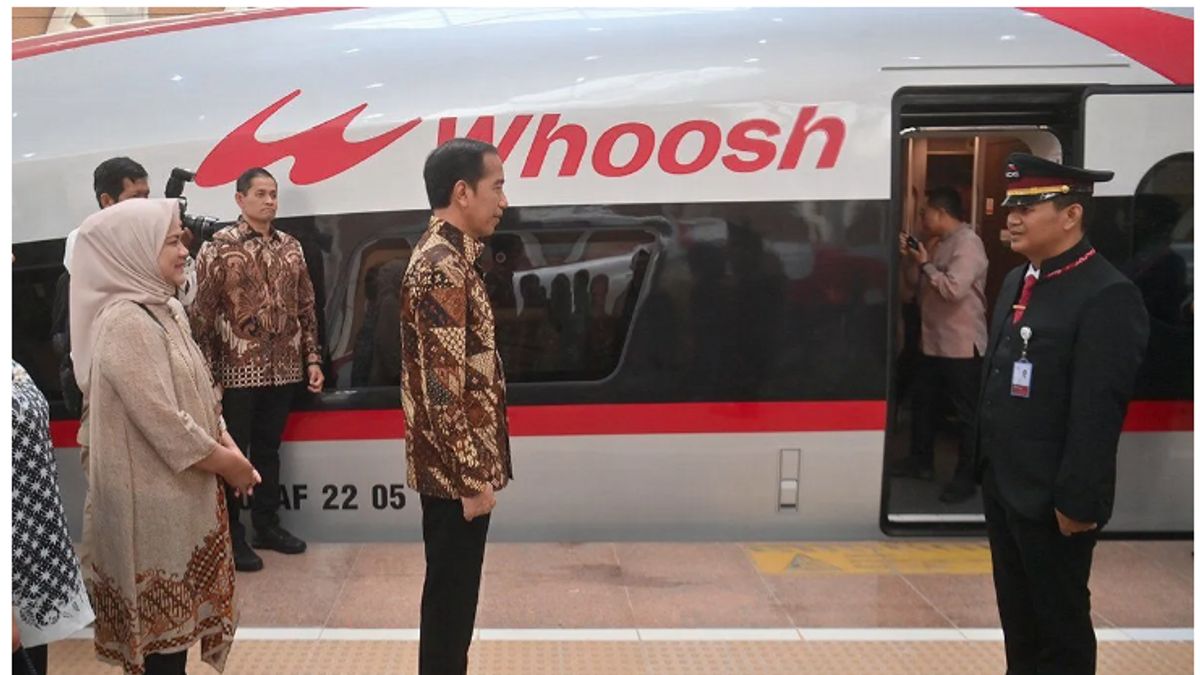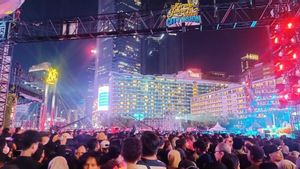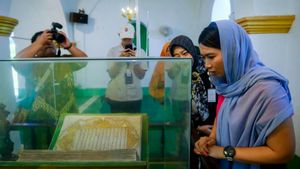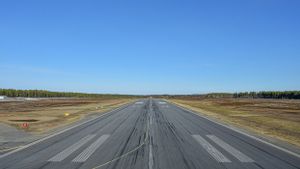JAKARTA - President Joko Widodo (Jokowi) has just inaugurated the Jakarta Bandung Fast Train (KCJB) which is named Whoosh. Jokowi said Whoosh was the first high-speed train in Indonesia and Southeast Asia.
The name Whoosh chosen for this fast train is short for Saving Time, Optimal Operation, Great System.
"By saying bismillahirahmanirahin, the Jakarta Bandung Fast Train Whoosh, I declare it is operational," said President Jokowi during the inauguration at KCJB Halim Station, Jakarta, October 2.
The work on the KCJB project received harsh criticism. Economist Faisal Basri once said that this project was not commercially viable so it would almost certainly be difficult to return on investment. He even dared to claim that even until the end of the world the project would not cover the investment that had already been made.
"It is estimated that until the end of the world there will be no return on investment," said Faisal.
Backbone of Transportation and Economic Driver
The pros and cons of railway development in Indonesia are not only happening now. During the colonial era, the Dutch East Indies government also had something similar happen 150 years ago, when they were about to build a railway on the island of Java.
There was a long debate among academics and Dutch East Indies government officials both in Indonesia and the Netherlands for more than 25 years before deciding on the first hoeing on June 17 1864 in Semarang.
In fact, according to transportation observer Djoko Setijoworno, the presence of the Jakarta Bandung Fast Train marks the history and civilization of transportation in Indonesia. For Djoko, fast trains are the future of transportation in Indonesia despite the controversy.
“This debate does not only occur in Indonesia, but also in many countries. "Perhaps only in China there are no pros and cons, because the country's political system does not provide space for prolonged discussion," said Djoko in his statement.

The debate over the Jakarta Bandung Fast Train project focuses on the large costs incurred. The project cost has become IDR 114.24 trillion or an increase of IDR 27.09 trillion from the original plan of IDR 86.67 trillion.
Apart from the escalating costs, the completion target for the Jakarta Bandung Fast Train has also been delayed from the initial target of completion in 2019 to 2023. The escalating project costs and the delayed completion target are due to the COVID-19 pandemic which has reduced the world economic sector and has an impact on the continuity of KCJB development. .
According to Djoko, Indonesia needs to learn from China which makes connectivity via high-speed trains the backbone of transportation as an economic driver, not toll roads or airplanes.
"After the fast trains in China started running, they moved goods transportation to conventional trains, so that the transportation routes for goods and people were completely separated, and logistics frequency could be high and competitive," explained Djoko.
Building an Image Through KCJB
Meanwhile, business expert Rhenald Kasali assesses that the Jakarta Bandung Fast Train project is not just a matter of business calculations. It may be true that the KCJB project will have difficulty returning capital, but he sees this as a matter of 'branding' or building the 'image' of a country.
Moreover, Indonesia is the first country in the Southeast Asia region to have a bullet train. Previously, neighboring countries, Malaysia and Singapore, had also built a high speed rail (HSR) project connecting Kuala Lumpur and Jurong.
But Malaysia canceled the project in 2020 because after recalculating, investment in the high-speed train project was considered very burdensome. When it was canceled three years ago, the high-speed train project was estimated to cost around 17 billion US dollars, or almost IDR 265 trillion according to current exchange rates.
"There are also those who say why build the Jakarta-Bandung high-speed train, now that there is a flyover, the road is fast. Still, in my opinion, we need a reputation. See if you are not proud, there was a picture earlier, right? Our transportation has improved," said Rhenald Kasali in Hub Space

"How then the port was built, the railway was built. I think this is something to be proud of and I am very happy to see my achievements and that my country is more appreciated than in the past," he added.
Apart from the KCJB issue, the construction of the Trans Sumatra Toll Road (JTTS) has also been criticized by many people. According to a number of groups, now is not the right time to build JTTS because it is not really needed.
In fact, this is not only the right time but also equitable development in all regions. Rhenald said that if development only focuses on the Java or Jakarta area, it will create justice problems.
“This is not just a matter of time, but there is an aspect of equitable justice. If you were a Sumatran, wouldn't you feel 'why is everything developed in Java?' In my opinion, if it is built in Java or Jakarta alone there will be justice problems, so connectivity is important," he concluded.
VOIR éGALEMENT:
The English, Chinese, Japanese, Arabic, and French versions are automatically generated by the AI. So there may still be inaccuracies in translating, please always see Indonesian as our main language. (system supported by DigitalSiber.id)


















